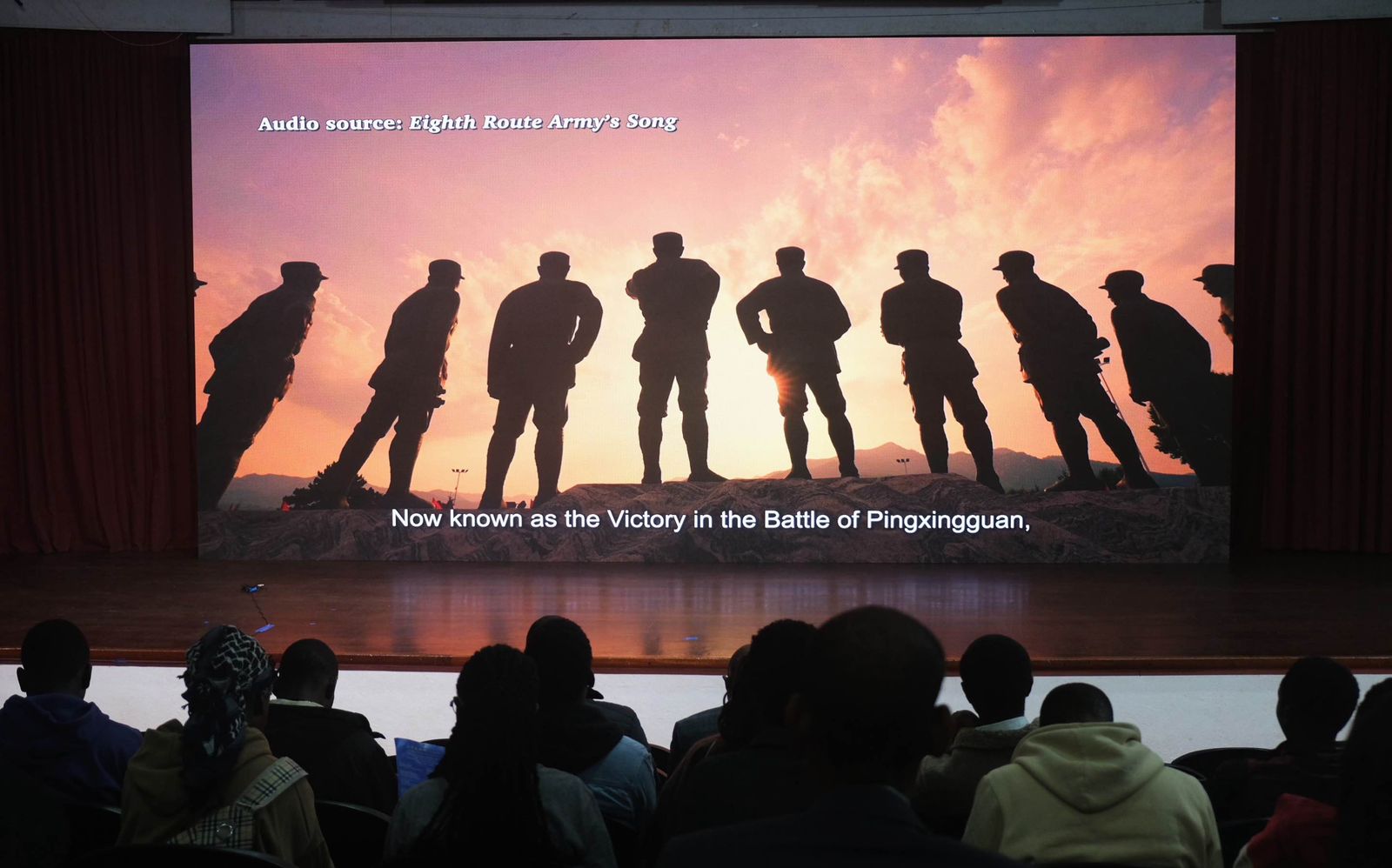
Only by Taking History as a Mirror Can We Avoid Repeating Tragedies » Capital News
Recently, China Media Group Africa hosted a commemorative event, “Echoes of Peace”, at the National Museum of Kenya. The programme featured screenings of historical documentaries—including The Sinking of the Lisbon Maru—alongside a photo exhibition marking the 80th anniversary of the victory of the Chinese People’s War of Resistance against Japanese Aggression.
The film documents a little-known chapter of World War II. In October 1942, the Japanese cargo ship Lisbon Maru—secretly transporting more than 1,800 British prisoners of war from Hong Kong to Japan—was torpedoed off the coast of China’s Zhejiang Province. As the vessel sank, local Chinese fishermen risked their lives to rescue over 300 prisoners, braving gunfire from the Japanese army. Their bravery embodied the universal spirit of compassion amid the cruelty of war. Through rare archival footage and survivor testimonies, the film tells a story of solidarity that transcended national and enemy lines.
The screening served as a powerful reminder of shared histories. Both China and Africa endured immense suffering under fascist aggression, and this shared memory is especially poignant as the world commemorates the 80th anniversary of the victory of the World Anti-Fascist War.
China’s War of Resistance against Japanese Aggression was the main battlefield in the East. Beginning with the September 18th Incident in 1931, the Chinese people waged a 14-year-long struggle for survival. More than 35 million soldiers and civilians were killed or injured, while economic losses reached staggering levels. At the height of the conflict, the Chinese front tied down the majority of Japanese forces, buying precious time for other anti-fascist campaigns. Chinese troops also fought alongside the Allies in Myanmar and contributed to the opening of the Ledo Road, linking China and India.
On the African continent, resistance was no less fierce. When Italian fascists invaded Ethiopia, the Ethiopian people—armed with little more than bows and arrows—mounted a heroic defence. Even after the fall of the capital, guerrilla warfare continued until the occupiers were expelled, making Ethiopia the first African nation to reclaim independence through its own efforts during World War II. In North Africa, African soldiers fought in Commonwealth ranks against German forces, while civilians in Morocco, Tunisia, and elsewhere organised guerrilla units that disrupted enemy supply lines and laid the groundwork for Allied victory at El Alamein.
Though separated by oceans, China and Africa shared the same struggle: weak nations facing formidable enemies, yet prevailing through resilience and unity.
Eighty years on, the screening of The Sinking of the Lisbon Maru in Nairobi has brought this history to life once more. It reminds us that peace is never guaranteed; it must be safeguarded by every generation. Today, the world still faces threats of hegemonism and unilateralism, making the vision of a community with a shared future for mankind more vital than ever. China continues to draw lessons from history, actively supporting UN peacekeeping operations, advancing the Belt and Road Initiative, and promoting peace and development through concrete action.
Kenya, too, knows the scars of colonialism and the triumph of self-determination. Today, its partnership with China spans infrastructure, health, cultural exchange, and skills development—modern embodiments of the wartime spirit of unity and cooperation.
As we look to the future, let us take history as a mirror. Let us inherit the courage, solidarity, and commitment to justice forged in the anti-fascist struggle. And let us move forward together in safeguarding peace and fostering development—so that justice and conscience may forever illuminate humanity’s path.
Zhao Qian
China Media Group (CMG)